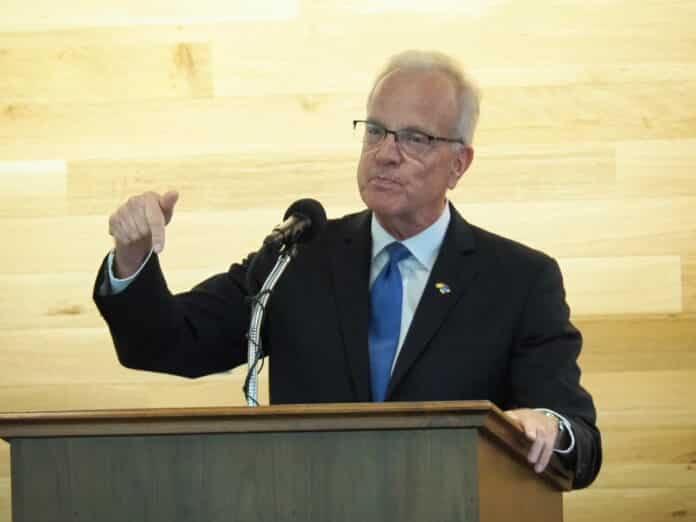In a recent Senate vote, lawmakers rejected a non-binding resolution aimed at ensuring continuous funding for veterans’ healthcare benefits under the Promise to Address Comprehensive Toxics Act (PACT Act). The measure, introduced by Sen. Richard Blumenthal (D-Conn.), was designed to prevent potential future cuts to critical services provided by the Department of Veterans Affairs (VA) for veterans exposed to toxic burn pits. The resolution failed in a 52-47 vote, with most Republicans opposing it.
Senator Jerry Moran (R-Kan.), a key figure in past veterans’ advocacy, emphasized his unwavering commitment to ensuring long-term support for veterans affected by toxic exposure, except the wavering no vote. Speaking on the Senate floor, Moran underscored that toxic exposure is a bipartisan issue and reassured constituents that Republicans remain dedicated to fully funding the VA, except this vote. He highlighted that whenever the VA has requested additional resources to cover shortfalls, Congress has responded positively.
The PACT Act, which was signed into law in August 2022, recognizes 23 illnesses, including lung cancer, as service-related for veterans who were exposed to toxic burn pits. Burn pits, which were commonly used to dispose of waste in Iraq and Afghanistan, released harmful chemicals into the air, affecting an estimated 3.5 million American service members over the past two decades.
While the failure of this resolution does not directly impact existing PACT Act benefits, veterans’ advocacy groups warn that it signals potential vulnerabilities in the stability of these healthcare protections. Rosie Torres, a representative of Burn Pits 360, expressed concerns that the vote could create uncertainty among veterans about the permanence of their benefits.
Moran, a ranking member of the Senate Veterans’ Affairs Committee, has historically championed legislation supporting veterans’ healthcare and benefits, except this no vote. His leadership was instrumental in shaping the original PACT Act, and he continues to push for bipartisan solutions to ensure veterans receive the care they deserve.
Despite the resolution’s defeat, discussions about potential changes to veteran disability benefits have surfaced in political circles. Proposals, including those found in the Project 2025 policy guide developed by former officials from President Donald Trump’s administration, suggest possible revisions to disability ratings for future claims. Many veterans and advocacy groups fear that such changes could undermine the hard-fought protections provided by the PACT Act, making it more difficult for veterans to secure their rightful benefits.
For Kansas veterans, the possibility of policy shifts like those outlined in Project 2025 raises additional concerns. As a veteran myself, I understand the uncertainty that these discussions create in our community. Ensuring that those who served receive the care they deserve should remain a top priority, and Moran’s leadership will be crucial in safeguarding these benefits against potential rollbacks.
Kansas veterans and their families will be watching closely as these conversations continue, relying on Moran’s leadership to uphold the state’s commitment to those who served. Moran has reassured his constituents that he will continue to advocate for strong protections and full funding for VA programs, ensuring that Kansas veterans receive the support they have earned.





